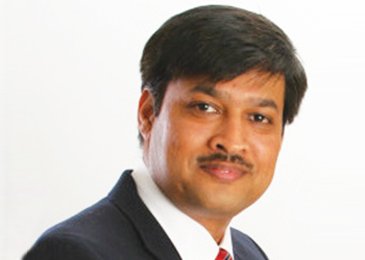"I ignored the junior faculty position in Johns Hopkins University"
April 04, 2013 | Thursday | Features
I ignored the junior faculty position in Johns Hopkins University"
Dr Mirajul H Kazi Ramalingaswami Fellow, NICED, Kolkata
After earning my masters degree in physiology, I joined the National Institute of Cholera and Enteric Diseases (NICED) to pursue my PhD, but remained unconvinced with the choice and uncertain future. Motivated by "a passion to do research", I worked with my PhD mentor, Dr Manoj K Chakrabarti, the then assistant director whom I always describe as "extremely supportive, encouraging, friendly, easily approachable, and always there", when I need advice and guidance. Life as a PhD student was driven by insatiable hunger and curiosity for evidence-based approaches in research. It was actually here at NICED that my interest in diarrhea and other gastrointestinal disorder was generated.
The year 2002 was a turning point as I had the opportunity to visit the United States and work for a short pre-doctoral training in the laboratory of Dr James W Putney, discoverer of capacitative calcium entry mechanism in the cell, National Institute of Environmental Health Sciences (National Institutes of Health (NIH), North Carolina, USA. In pursuit of my passion, I later worked with Prof. Henry J Binder, MD of digestive department of Yale University School of Medicine, New Haven, Connecticut. In order to further boost my research capability by mastering several other areas, I moved to the gastroenterology division of the Johns Hopkins University headed by Prof. Mark Donowitz to work on the regulation of transport proteins involved in the pathobiology of diarrheal diseases. During my stay at Hopkins I closely worked with Dr Chung Ming Tse, an eminent molecular biologist who first cloned the sodium hydrogen exchanger-3 protein. Thanks to my post-doctoral mentors. I've grown so much as a scientist in the way I think about and handle biological questions.
It is my desire to be independent to the best of my ability, no matter my destination either in USA or to my home country. I was encouraged to submit NIH (National Institute of Health, USA) K99 and KO1 grant for my independent research career at the Johns Hopkins University. In 2009, I submitted grants to NIH as well as to Wellcome Trust-Department of Biotechnology (DBT) India Alliance for senior fellowship and DBT Ramalingaswami Fellowship. And I was selected for Ramalingaswami Fellowship in early 2010. But life's pathways are not always straight. I married Subhra who works as an assistant scientist at the Johns Hopkins Bloomberg School of Public Health, Baltimore, MD. We both were discussing at that time on my desire to come back to India and prospects of life science research there.
Clearly, India is spending more on biology, specifically higher budget inputs into R&D in biology, translational medicine, greater international connectivity, US-India collaboration in bioscience-an excellent resource complementation and our own desire drove me to come back to my country for R&D. It is important to mention that Dr GB Nair, an eminent Indian microbiologist and then director of NICED, Kolkata recognized my talent, and inducted me in his institute since my research background and expertise did perfectly fit to the mission of the NICED; looking for the better treatment strategy for diarrhea with a focus on epithelial transporters; ion channels, exchangers and their role in diarrhea. Though I was promoted to the level of instructor of medicine (entry level junior faculty) at the Johns Hopkins University, I came back to India and joined NICED, Kolkata on August 5, 2010, honoring the first opportunity that came to my way by the Department of Biotechnology in the form of Ramalingaswami Fellow. I am proud to say that I am working now as an independent researcher for my own country.









